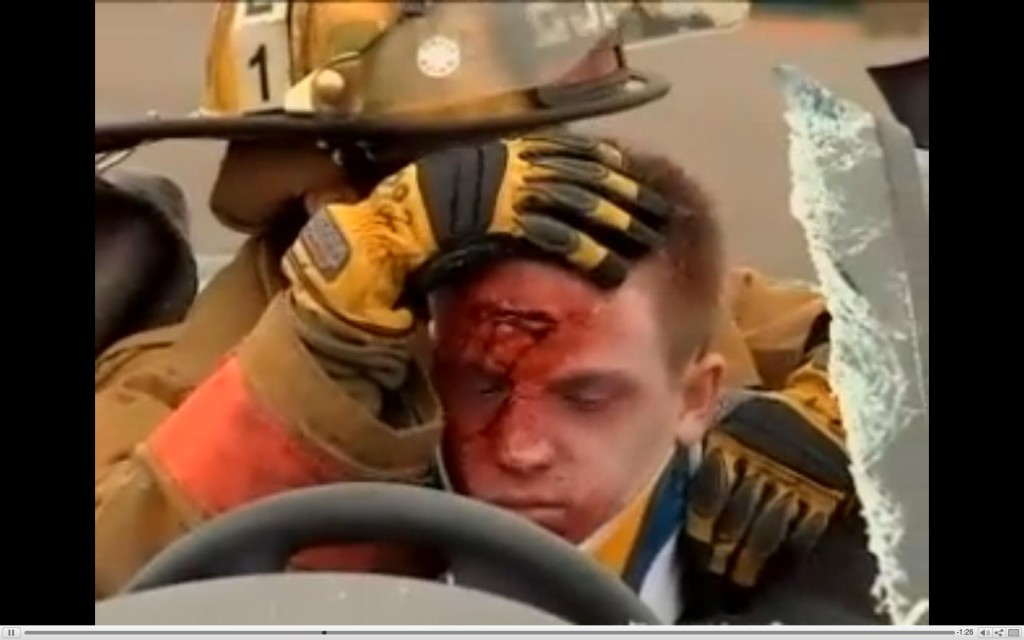
mock DUI crash

mock DUI crash
In recent years, a number of high schools across the country have made drinking-and-driving facts and figures only part of teens' driver's ed program. Many now also include DUI (or DWI) simulators that give teens an idea of how a number of drinks will affect reaction time, as well as accuracy.
Now, in a nod back to the gorefests of the past, it's going a step further: Schools are staging mock DUI crashes to help raise awareness of just how gruesome the aftermath can be. For instance, just a few days before prom night, R.E. Lee High in Staunton, Virginia held a mock head-on collision, with fire and rescue crews participating and live video streams, as victims were extricated from a Jeep Cherokee. Another, near Duluth, Minnesota, staged a gory crash in the high-school parking lot, with the state patrol and local fire department among many taking part. In Pennsylvania, at Pocono Mountain East High School, emergency responders reacted to a mock crash of beer-binging teens; and at Houston High School in La Crosse, Wisconsin, students filed outside to see accident victims, including one handcuffed and one 'dead.'
In a National Highway Traffic Safety Administration (NHTSA) 2006 focus-group report on Teen Unsafe Driving Behaviors, the majority said that they could tell when someone was too drunk to drive, or didn't see driving after one or two beers to be an issue. The report authors suggested presenting real statistics, or talking to teens who have been involved in crashes, but they never suggested that dramatic enactments would be effective.
Many of these staged events, associated with local chapters of national drunk-driving awareness groups, hope to raise awareness of the consequences of drinking and driving, but do you think they work to that effect? Or does the melodrama end up working against them in some ways, like those scare-tactic movies of the 1950s? Would we be better off with stricter rules, or a different attitude about alcohol? If you have stories to share, please do!
